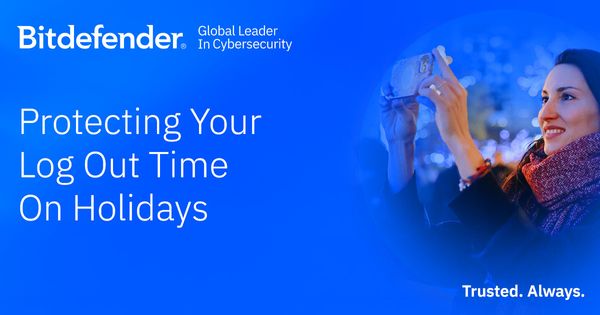This holiday season, share your love, not your passwords

Amidst all the holiday buzz, it's easy to forget about your online defenses. Think of your passwords as your house's front door; if you don't want anyone to enter, close it well.
During the holidays, the incidence of house break-ins is higher, and so is the number of account break-ins. Hackers use different techniques to take advantage of a weak password: brute force attacks (computer programs to guess different character combinations), dictionary attacks: programs to guess words from a dictionary), or social engineering, deceiving you into revealing your password.
But here's the scoop: knowing that hackers are on the prowl during the holidays even more than in any other period of the year gives you the upper hand. Strengthen your (digital) locks and keep your online world secure.
Why change passwords before changing the year?
Weak passwords leave you vulnerable in several ways. Once a hacker knows your login credentials, they could:
- Access your email and social media accounts, locking you out of them.
- Make transactions and transfers using your bank accounts.
- Gather more personal, sensitive information and steal your digital identity.
- Sell your information on the Dark Web or to other criminals
- Send messages to your friends and family members from your accounts and try to scam them.
- Use malware to encrypt your files and programs, then ask for ransom.
3 simple steps for fortifying your online defense
#1. Create Strong Passwords for Your Accounts: Update your passwords for your email, banking, and social networking accounts. Follow these steps:
- Combine letters, numbers, and special characters.
- Opt for a lengthy password, ideally 12 characters or more.
- Steer clear of easily guessable information like your name or birthdate.
- Avoid common words or phrases found in a dictionary.
Avoid Password Recycling: Never reuse passwords, especially for accounts containing personal information. If one falls into the wrong hands, the other accounts will be compromised.
#2. Set up Two-Factor or Multi-Factor Authentication (MFA). Here's why:
o They require an additional verification step beyond your password, often involving a one-time code sent to your personal device (usually your phone).
o Even if a hacker manages to get their hands on your password, they won't be able to log in without access to your personal device.
#3. Be careful with what you share online
Your personal information is like a treasure to cybercriminals. Sometimes, they can gain access to your accounts by simply looking at what you have shared online. So, limit the personal information you give away on social media and other websites.
Protecting Your IMPORTANT: You are as safe as your most vulnerable password
If you'd rather spend your time on more exciting things than constantly changing or creating passwords, use Bitdefender Password Manager.
It generates, auto-saves, auto-fills, and manages your passwords for all websites and online services with the help of a single Master Password.
The Autofill feature is both safe and convenient; plus, if you enter a phishing website, you'll know because autofill doesn't work, you'll have a red flag before mistakenly logging in.
| Without Bitdefender Password Manager | With Bitdefender Password Manager |
|---|---|
| You create/ update all your passwords, often ending up with ones that are too simple or repeated | Generate a secure, complex, and unique password for every new account, in a single click |
| Write passwords down to remember them | Store your passwords immediately after creating them and keep them in an ultra-safe environment |
| Remember the passwords. If not, deal with the frustration and spend time to recover/ change forgotten passwords. | Autofill credentials on visited websites, saving precious time |
| Never knowing for sure whether a password is a duplicate, or too weak, or leaked in a breach | It constantly monitors breaches and issues alerts when usernames, e-mails, passwords, or credit cards are exposed |
Take the time to decide how you want to create your next strong password. The holidays are meant for relaxing and spending time with friends, family, and loved ones—not worrying about becoming a victim of cybercrime.
tags
Author
Cristina is a freelance writer and a mother of two living in Denmark. Her 15 years experience in communication includes developing content for tv, online, mobile apps, and a chatbot.
View all postsRight now Top posts
How to Protect Your WhatsApp from Hackers and Scammers – 8 Key Settings and Best Practices
April 03, 2025
Outpacing Cyberthreats: Bitdefender Together with Scuderia Ferrari HP in 2025
March 12, 2025
Streamjacking Scams On YouTube Leverage CS2 Pro Player Championships to Defraud Gamers
February 20, 2025
How to Identify and Protect Yourself from Gaming Laptop Scams
February 11, 2025
FOLLOW US ON SOCIAL MEDIA
You might also like
Bookmarks






